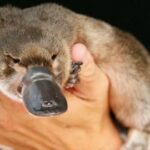Keeping a pet sloth might sound like a dream for exotic animal enthusiasts. Their gentle demeanor and slow-paced lifestyle can be appealing. However, before you envision a sloth hanging in your home, it’s crucial to understand the realities of sloth ownership, especially the financial commitment. You might be wondering, “How Much Does A Pet Sloth Cost?” The answer is not just about the initial purchase price; it encompasses a range of expenses spanning from acquisition to long-term care. This guide will delve into the costs associated with owning a pet sloth, providing a comprehensive overview for prospective owners.
Initial Sloth Cost and Legalities
The most immediate question for many is the purchase price of a sloth. Captive-bred baby two-toed sloths typically range from $6,000 to $10,000. This hefty price tag reflects their rarity, specialized breeding, and the exotic pet market. Adult sloths might be available, but purchasing from reputable sources is paramount to avoid supporting the illegal wildlife trade and ensure the animal’s well-being.
:max_bytes(150000):strip_icc()/pet-sloths-1239558_FINAL-5bb7c39b46e0fb002692b888.png)
Beyond the initial cost of the animal, legality plays a significant role. As of 2024, owning a two-toed sloth is legal in certain US states, including Alabama, Florida (with a permit), and Texas, among others. However, laws are subject to change, and regulations can vary significantly by state and even locally. It is your responsibility to verify the legality of sloth ownership in your specific location. Contacting state and local wildlife authorities is essential before considering bringing a sloth home. Some states may have restrictions on boarding or transporting sloths, adding further complexity.
Ethical Considerations and Sourcing Your Sloth
Before focusing solely on the monetary cost, consider the ethical implications. Wild animals like sloths often struggle in captivity. Replicating their natural rainforest environment perfectly is virtually impossible, potentially impacting their health and well-being. Sloths are not domesticated animals and don’t communicate in ways humans easily understand, making it challenging to detect stress or discomfort. This makes ethical sloth ownership a complex issue, even for dedicated individuals.
The illegal pet trade poses another ethical concern. Wild sloths are sometimes captured and sold, which is illegal and detrimental to sloth populations. Three-toed sloths, in particular, are often illegally traded and rarely survive in captivity. Therefore, if you proceed with sloth ownership, sourcing from a reputable breeder or exotic pet broker is crucial. A responsible seller will be knowledgeable about sloth care, transparent about the animal’s origin, and genuinely concerned about the animal’s future welfare. They should ask you detailed questions about your experience and ability to provide proper care. Be wary of sellers who seem primarily motivated by profit and offer little information or ask few questions about you.
Setting Up a Suitable Sloth Habitat: A Costly Endeavor
Creating the correct habitat is a substantial upfront and ongoing cost. Sloths are arboreal animals, spending almost their entire lives in trees in the wild. In captivity, they require a spacious enclosure that mimics this environment.
Enclosure Costs:
- Dedicated Room or Large Enclosure: You will likely need to dedicate a room or construct a large, secure enclosure. The size will depend on whether you choose to house a single sloth or multiple (though they are generally solitary). Material costs for a custom enclosure can range from several hundred to several thousand dollars, depending on size and materials (wood, mesh, etc.).
- Climbing Structures: Sloths need ample climbing opportunities. This means providing sturdy trees, branches, logs, and poles. Acquiring and installing these can add to the initial costs. Consider the cost of sourcing appropriate wood and ensuring it is safe and non-toxic.
- Heating and Humidification Systems: Replicating a rainforest climate is essential. Sloths thrive in temperatures between 90 to 100 degrees Fahrenheit with 80% to 90% humidity. High-quality heaters, humidifiers, thermostats, and hygrometers are necessary. These systems can be expensive to purchase and maintain, potentially costing hundreds to thousands of dollars depending on the size of the space and the efficiency of the equipment. Energy costs for running these systems will also be a recurring expense.
Ongoing Habitat Maintenance Costs:
- Energy Bills: Maintaining a tropical climate year-round will significantly impact your electricity bill.
- Equipment Replacement: Heaters and humidifiers have lifespans and will need replacement over time.
- Enclosure Upkeep: Cleaning, repairing, and replacing climbing structures will be ongoing tasks with associated costs.
Sloth Diet and Feeding Expenses
Providing a proper diet is another critical and potentially expensive aspect of sloth care. In the wild, sloths eat leaves, buds, and tender shoots from specific rainforest trees. Replicating this diet perfectly in captivity is challenging.
Dietary Costs:
- Specialized Pellet Food: A base diet often consists of “leaf-eater” pellets like Marion Leaf Eater pellets or Mazuri High Fiber Sticks, used in zoos. These specialized foods can be costly and may need to be ordered online or from specialized suppliers.
- Fresh Produce: Supplementing pellets with fresh vegetables and fruits is crucial. You’ll need to regularly purchase a variety of safe options like lettuces, dandelion greens, carrots, apples, green beans, and sweet potatoes. Organic produce is recommended to minimize pesticide exposure, further increasing costs.
- Water and Food Bowls: Specialized bowls placed high in the enclosure and on the ground are needed.
Ongoing Food Costs:
- Regular Food Purchases: The cost of pellets and fresh produce will be a continuous expense.
- Supplement Costs: Depending on your veterinarian’s advice, you might need to add vitamin or mineral supplements to the diet, adding to the overall cost.
It’s crucial to avoid feeding sloths leaves from your backyard as they may be toxic or treated with pesticides. Sourcing safe and appropriate food requires careful planning and consistent spending.
Veterinary Care Costs for Pet Sloths
Exotic pets like sloths require specialized veterinary care. Finding a veterinarian experienced with sloths is essential and can be challenging and expensive.
Veterinary Expenses:
- Initial Vet Check: A pre-purchase veterinary exam is highly recommended to ensure the sloth is healthy. This will incur a cost.
- Regular Check-ups: Annual or bi-annual check-ups with an exotic vet are necessary for preventative care and monitoring health. Exotic vet visits are typically more expensive than those for common pets.
- Emergency Care: Unexpected illnesses or injuries can occur, requiring emergency veterinary treatment, which can be very costly. Sloths are prone to nutritional deficiencies, digestive issues, respiratory problems, and injuries.
- Specialized Treatments and Medications: If your sloth develops health problems, specialized treatments, diagnostic tests, and medications will add to the financial burden.
Preparing for Veterinary Costs:
- Exotic Pet Insurance: Consider pet insurance that covers exotic animals, although availability and coverage for sloths may be limited and expensive.
- Emergency Fund: Setting aside a dedicated emergency fund for potential veterinary expenses is highly advisable.
Long-Term Commitment: Lifespan and Ongoing Costs
Sloths have a long lifespan, living over 30 years in captivity. This means that owning a sloth is a decades-long commitment, both in terms of care and finances. The costs outlined above – habitat maintenance, food, veterinary care – will be recurring expenses for the entire lifespan of the animal.
Long-Term Financial Planning:
- Budget for 30+ Years: Factor in the ongoing costs for potentially over three decades.
- Contingency Plans: Consider what would happen to the sloth if your financial situation changes or you are no longer able to care for it.
Are Sloths the Right Pet for You? Considering the Total Cost
Owning a pet sloth is a significant financial and emotional undertaking. The initial purchase price is just the tip of the iceberg. The costs of creating and maintaining a suitable habitat, providing a specialized diet, and ensuring access to exotic veterinary care accumulate over the sloth’s long lifespan.
Before asking “how much does a pet sloth cost?”, perhaps the more pertinent question is “can I realistically and ethically afford to care for a sloth for the next 30 years?”. Visiting sloths in their natural habitat or at reputable zoos and wildlife centers might provide the enjoyment of these unique animals without the substantial financial and ethical responsibilities of ownership. If, after careful consideration of all the costs and commitments, you are still prepared to provide for a sloth’s complex needs, then responsible sloth ownership might be a possibility. However, thorough research, realistic financial planning, and ethical sourcing are paramount.

